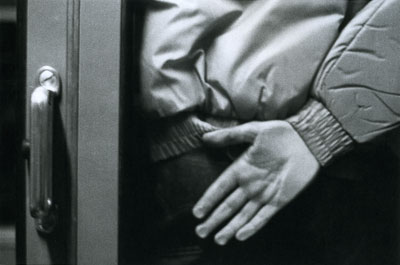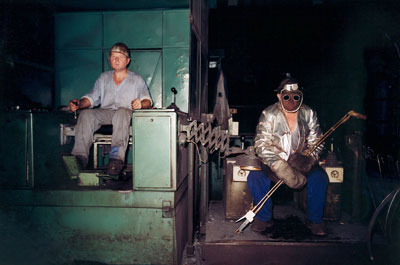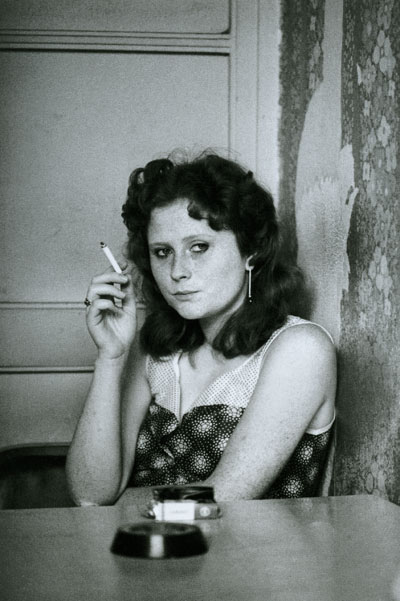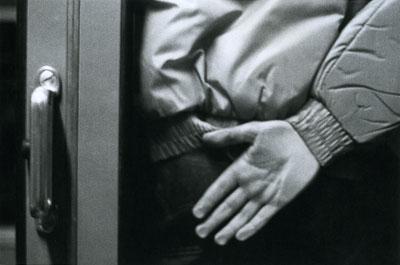When I met with Stephanie Barron, our senior curator of modern art, and her curatorial researcher Dorothea Schoene, to review the scope of photography they were planning to include in Art of Two Germanys: Cold War Cultures, it caused me both delight and some shame because, for first time, I saw the photographs of Maria Sewcz, Helga Paris, and Gundula Schulze Eldowy.
Each of these photographers was based in East Berlin in the 1980s. In different ways, all three took the language of documentary photography and applied it to the harsh realities and marvelous banalities of GDR society. All three women found ways to both speak of and comment upon ways of life that neither visually nor politically fit with the official version of East Germany at the time.
Maria Sewcz's observational photographs are brilliantly strange—every photographic moment is somehow out-of-kilter, full of visual and symbolic contradictions, and communicates a detached and playfully ironic perspective upon the cracks within a highly regimented culture.

Maria Sewcz, Untitled, from the Inter Esse series, gift of the artist
Gundula Schulze Eldowy has a unique antenna for casting friends and strangers as her photographic subjects and collectively creates a powerful record of lives that did not fit with the party line. Her subjects are vulnerable, raw, expressive, and resolutely individual.

Gundula Schulze Eldowy, Untitled (Dresden), gift of Lynda and Robert M. Shapiro
Helga Paris's plain, naturally lit single portraits cannot be disconnected from the plainest portraits made by the early-twentieth-century German photographer August Sander. (Sander, a commercial portrait photographer, attempted to photograph and categorize social "types" ranging from those that were determined by social class, profession, and political and intellectual affiliations; the range fell foul of the Nazi Ministry of Culture in 1934 and Sander was forced to cease his project.) Paris's portraits carry that magical, Sander-esque mix of frank fragility of the photographic connection between the subject and the photographer, and the self-determination that the subject projects to Paris and her camera.

Helga Paris, Untitled, gift of Lynda and Robert M. Shapiro
Thanks to Stephanie's fateful introduction to Sewcz, Paris, and Eldowy, we have since acquired works by each of them for LACMA's photography collection.



